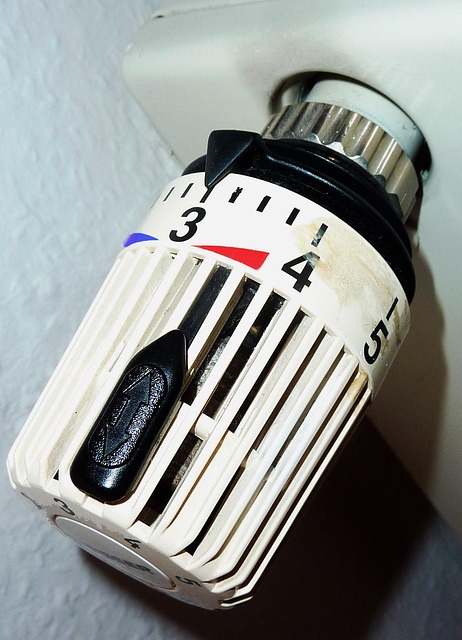Dental implants for seniors: cost overview and offers
Dental implants have revolutionized tooth replacement options for seniors, offering a permanent solution that closely mimics natural teeth in both function and appearance. As the population ages, more seniors are considering dental implants to enhance their quality of life, improve nutrition, and maintain facial structure. However, the significant investment required often leads to questions about costs, available offers, and financing options.

Understanding dental implant costs for seniors
Dental implants represent a significant investment in oral health for seniors. The total cost typically includes several components: the implant fixture (titanium post), abutment, crown, and associated procedures such as extractions or bone grafts. For seniors, a single tooth implant generally costs between £1,500 and £2,500 in the UK. Full-mouth restorations using techniques like All-on-4 implants can range from £5,000 to £25,000 per arch, depending on complexity and materials used. These higher costs reflect the specialized training required, laboratory fees for custom prosthetics, and the surgical procedures involved. Many seniors find that despite the initial investment, implants offer better long-term value compared to alternatives like dentures that require regular replacement.
Comparing dental implant offers for seniors
When evaluating dental implant offers, seniors should understand that significant price variations exist between providers for legitimate reasons. NHS dental implant treatment is extremely limited, primarily available only for specific medical conditions. Private dental clinics offer varying implant systems with different price points. Premium implant brands like Straumann and Nobel Biocare typically command higher prices but offer extensive research backing and lifetime warranties. Mid-range options from companies like Osstem or BioHorizons provide reliable alternatives at more moderate costs. Some clinics advertise “budget implants” starting from £750, but these often exclude necessary components like crowns or preparatory treatments. Rather than focusing solely on the headline price, seniors should request comprehensive treatment plans that detail all associated costs.
Financing options for senior dental implants
The significant cost of dental implants has prompted the development of various financing solutions aimed at making treatment more accessible for seniors. Many UK dental practices now partner with finance companies to offer monthly payment plans, typically spreading costs over 1-5 years. Interest-free options usually apply to shorter terms (12-24 months), while longer payment periods incur interest rates between 9.9% and 19.9% APR. Some clinics offer senior-specific discounts ranging from 5-15% off standard prices. Dental insurance policies rarely cover the full cost of implants, but some premium plans provide partial coverage (typically 20-50% of costs) after waiting periods. Health savings accounts (HSAs) and flexible spending accounts (FSAs) can also be utilized to pay for implant treatment using pre-tax income, potentially saving hundreds of pounds.
Dental implant providers and cost comparison
The cost of dental implants varies significantly across providers, with factors including implant brand, practitioner expertise, and included services affecting pricing. Below is a comparison of typical implant providers in the UK:
| Provider Type | Single Implant Cost | Full Arch Solution | Warranty Period | Financing Options |
|---|---|---|---|---|
| NHS Dental Hospitals | £500-£800* | Limited availability | 1-2 years | Payment plans rare |
| Dental Schools | £800-£1,500 | £8,000-£12,000 | 1-3 years | Case-by-case |
| Private UK Clinics | £1,800-£3,000 | £10,000-£25,000 | 5-10 years | Most offer financing |
| Dental Chains | £1,500-£2,200 | £8,000-£15,000 | 5 years typical | All offer financing |
| European Dental Tourism | £700-£1,200 | £4,000-£8,000 | 2-5 years | Limited options |
*NHS treatment only available for specific medical conditions, not cosmetic purposes
Prices, rates, or cost estimates mentioned in this article are based on the latest available information but may change over time. Independent research is advised before making financial decisions.
Special offers and discounts for senior dental implants
Dental providers frequently create targeted offers to make implant treatment more accessible for seniors. Common promotional structures include multi-implant discounts, where the price per implant decreases when multiple implants are placed simultaneously. These typically offer savings of 10-30% compared to single implant pricing. Many practices also provide complimentary initial consultations (normally valued at £50-£150) and free CT scans (worth £150-£300) for seniors considering implant treatment. Seasonal promotions are common, particularly in slower booking periods like January or summer months, with discounts ranging from £200-£500 per implant. Membership plans at some dental practices offer seniors ongoing discounts of 10-20% on implant procedures alongside other dental care. When evaluating special offers, seniors should verify exactly what’s included in the advertised price and whether additional treatments like bone grafting or temporary prosthetics would incur extra charges.
Questions seniors should ask about dental implant costs
Before committing to dental implant treatment, seniors should approach the decision with thorough consideration of both clinical and financial factors. Key questions regarding costs include understanding what’s included in the quoted price (implant, abutment, crown, preliminary procedures), and what might cost extra. Seniors should clarify the implant brand being used and any associated warranty terms. Understanding possible complications and their financial implications is crucial—ask whether additional procedures would require extra payment or if they’re covered by any guarantee policy. Payment timing is another important consideration: most practices require deposits before beginning treatment, with final payments due upon completion. For those considering financing, understanding the total cost including interest is essential. Finally, seniors should inquire about maintenance costs, as regular professional cleanings and potential component replacements (such as worn crowns or attachments) represent ongoing investments in the implant’s longevity.
Dental implants represent a significant but potentially worthwhile investment for seniors seeking a permanent tooth replacement solution. By understanding the true costs, comparing available offers, and exploring financing options, seniors can make informed decisions about this life-changing dental treatment. While the initial expense may seem substantial, the long-term benefits of improved nutrition, confidence, and quality of life make dental implants a consideration worth exploring with dental professionals.
This article is for informational purposes only and should not be considered medical advice. Please consult a qualified healthcare professional for personalized guidance and treatment.




